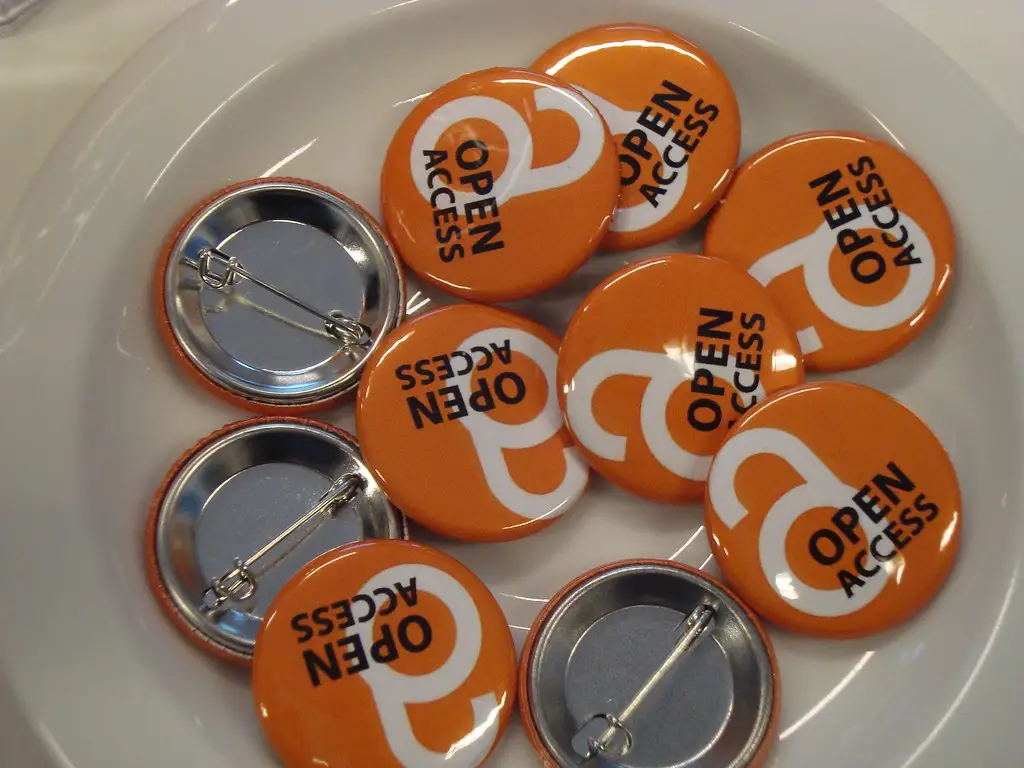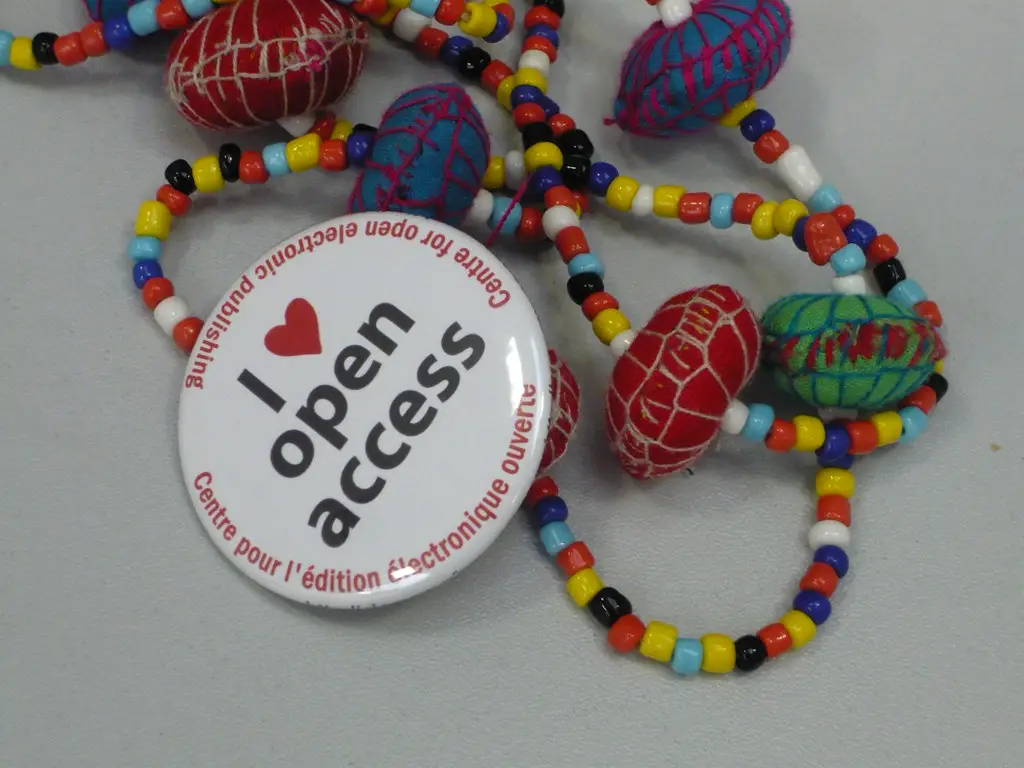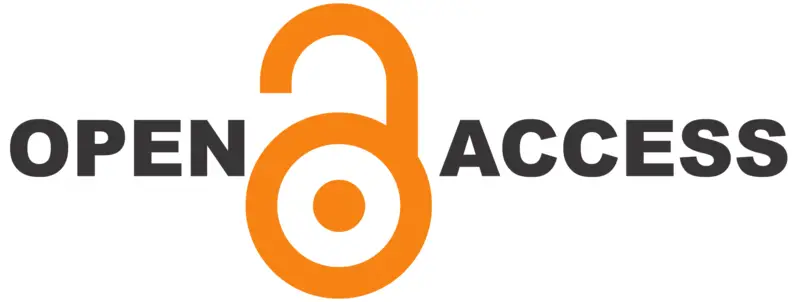Open Access (OA) principles are rapidly gaining support. Governments, including here in the USA, are enshrining its principles in legislation. It typically involves publishing materials under public copyright licenses (normally Creative Commons) to enable free distribution and use.
Related: The Indian Publishing Industry: For Love or Money?
Distributing the work digitally is not all that is involved; the legal aspects are crucial. OA content must be legal to distribute and re-use for it to be truly open.
What does this mean for the publishing sector?

News and academic research are important in forming public opinion and developing an informed public. It is certainly in the public interest for people to be well-educated and informed. But publishing must be a sustainable business.
Bookshops are especially sensitive to changes in business practices. This is an important unfolding of events that booksellers need to watch carefully.
The White House Moves to Ensure Open Access to Research
In August 2022, the White House released a memo on public access to publicly funded research. Specifically:
- If research is federally funded, the resulting publication must be made publicly accessible for free upon publication – not with a 12-month embargo (a loophole that allowed journals to lock up research for a year behind paywalls).
- It must be in a machine-readable format so that it can be searched and catalogued.
- Metadata (e.g. funding sources and author affiliation) must be included so that the public can understand who funded the research.
- The scientific data must also be made available to the public (unless sharing it would have negative outcomes in a legal, ethical, or security sense).
- Research data without publication should be made available to government agencies.
This also includes book chapters and conference proceedings.
Notably, this is a policy recommended by UNESCO at the General Conference in 2021.
Jeffrey Brainard, for Science.org, examined how the new policy will “significantly reshape and expand” access rules in the USA. Publishers are unhappy, but it is too soon to tell what the impact will really be; “the impact on publishing is unclear.”

But publishing companies have a much more straightforward opinion. They have widely objected to the new rules from the White House. They argue that it will threaten the financial position of academic journals and destabilize the sustainability of their businesses.
For better or worse, could this herald a new model of publishing?
Keeping the Public Informed, Even if They Cannot Pay?
Tara McGowan of Poynter.org recently urged news outlets in the USA to make 2022 election coverage free to read.
Newsrooms have increasingly put their content behind paywalls, leaving them out of reach of the ordinary American who either cannot pay or is unwilling to pay.
Related: How are Booksellers Responding to the Global Paper Shortage?
She writes that “passive consumers may have faith that good, accurate news about the world and their own communities will somehow find them. But with few exceptions, they’re wrong about that.”
Here are her recommendations for using the news publishing system to nurture true democracy:
- Make 2022 election coverage free.
- Create a pro-democracy underwriting program.
- Team up to spread free, reliable information (e.g. a for-profit outlet can team up with a non-profit newsroom to lift up under-covered stories or voices or reach new audiences. Make collaborative stories free online. This must be “supercharged by people who have the money to make a difference.”)
- Stop writing for the elite.
- Go where non-subscribing Americans are. “If you build it, they will come” is “dangerously out of touch.”
- Finding passive consumers and providing them with the news.
- Social algorithms will NOT do this for you.
- Go where people are and make the information as accessible as possible. For example, the Washington Post shares headline graphics on Instagram and TikTok.
The Role of the Library
University landscapes have been reinventing the game when it comes to OA. Some have launched their own publishing and content hosting initiatives to provide OA research.

Rebecca Wojturska writes for The Bookseller that Edinburgh Diamond is a growing university OP scheme that provides multiple services to enable research, books, and conference proceedings to be shared freely:
- Free publishing platform and support to academics, staff, and students;
- Access to and training on a workflow management system to help with submissions, peer review, and publication;
- Tech support;
- ISSN, ISBN, and DOI registration;
- Best practice guidelines;
- Publication ethics advice;
- Indexing management;
- Annual reporting on article downloads, citations, and reach.
Right now, they have 19 journals, four conference proceedings, and two books. There’s much more in the pipeline. They are not currently offering copyediting and typesetting services. Wojturska notes that university schemes hope especially to catch research coming out of the institution that “might otherwise fall through the cracks” – maybe it’s a niche subject area, maybe it’s commercially unprofitable, or maybe it’s ‘only’ a student publication. All are considered worthy of publication under this model.
The Challenge – How to Make it Work?
At the end of her article, Wojturska notes the critical element that I think should be raised right at the start: This model relies on a secure funding stream. The context? Budgets are increasingly tight for a myriad of reasons.
And publishing must be sustainable. For book authors, it is hoped that a book will be successful. But often they are not. Sometimes the author bears the cost, and sometimes the publisher took on the risk and it is to be covered by another book’s success. Either way, someone pays.

Tara McGowan’s concept of providing free election news coverage is wonderful, but surely, in the end, the cost will be built into the subscriptions.
Ultimately, as usual, we must rely on the goodness of humanity to be willing to step up and fund community access to knowledge.
What model of publishing can best allow people to access knowledge? I would love to read your ideas.
